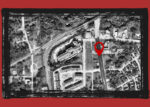Southern Dallas has long lagged in terms of development compared with other parts of the city, where instances of racial inequities have been cited as reasons for the condition.
The Oak Cliff Community Investment Fund plans to change the trend.
The black-led local community-development organization has proposed a 63-acre mixed-use development in southeast Oak Cliff, named Parks at Oak Cliff. Plans include more than 300 residential units, a cultural center, green space, a grocery store, restaurants, retail space, a boutique hotel and a health clinic, according to the Dallas Morning News.
“As development moves south in our city, it is critical that we build communities that improve the quality of life for the families who have made southern Oak Cliff what it is today,” said founder Joe Estelle.
Available residences will include townhomes, detached single-family homes and duplexes— only 30 percent will be rentals. The homes are designed to be mixed-income, ranging in price to be affordable for people making 80 to 120 percent of the area median income.
“Almost all the affordable housing developments you see in Dallas right now are rental housing, and we understand that while it meets a need of putting a roof over people’s heads, it doesn’t actually provide any kind of long-term wealth-building opportunities for families,” said principal and senior manager Allison Brim.
Read more


Brim and Estelle met three years ago while working together at the Texas Organizing Project, which focuses on Black and Latino communities across Texas in regard to the effects of matters such as mass incarceration, immigration, health care, voting rights, education, housing and climate.
“We really created this vision for a community development that could include several strategies to close the racial wealth gap and also address the needs in the community for housing and other amenities,” says Brim.
The project aims to help spur homeownership, business incubation and financial investment opportunities for underserved families. OCCIF is currently in talks for funding at the federal, state, county and city levels to reduce ownership costs. It’s also exploring ways for renters to contribute a portion of their rent toward the cost of purchasing a for-sale home in the community.
“We know that the biggest contributor to the racial wealth gap is the lack of homeownership,” Estelle said.
While specific plans are still being worked out, the organization has settled on 2700 Simpson Stuart Road for the site with construction anticipated to take place over about five years. The property is currently under contract. OCCIF is raising capital for site acquisition and entitlement through a mix of equity, debt and public funding.
— Maddy Sperling
